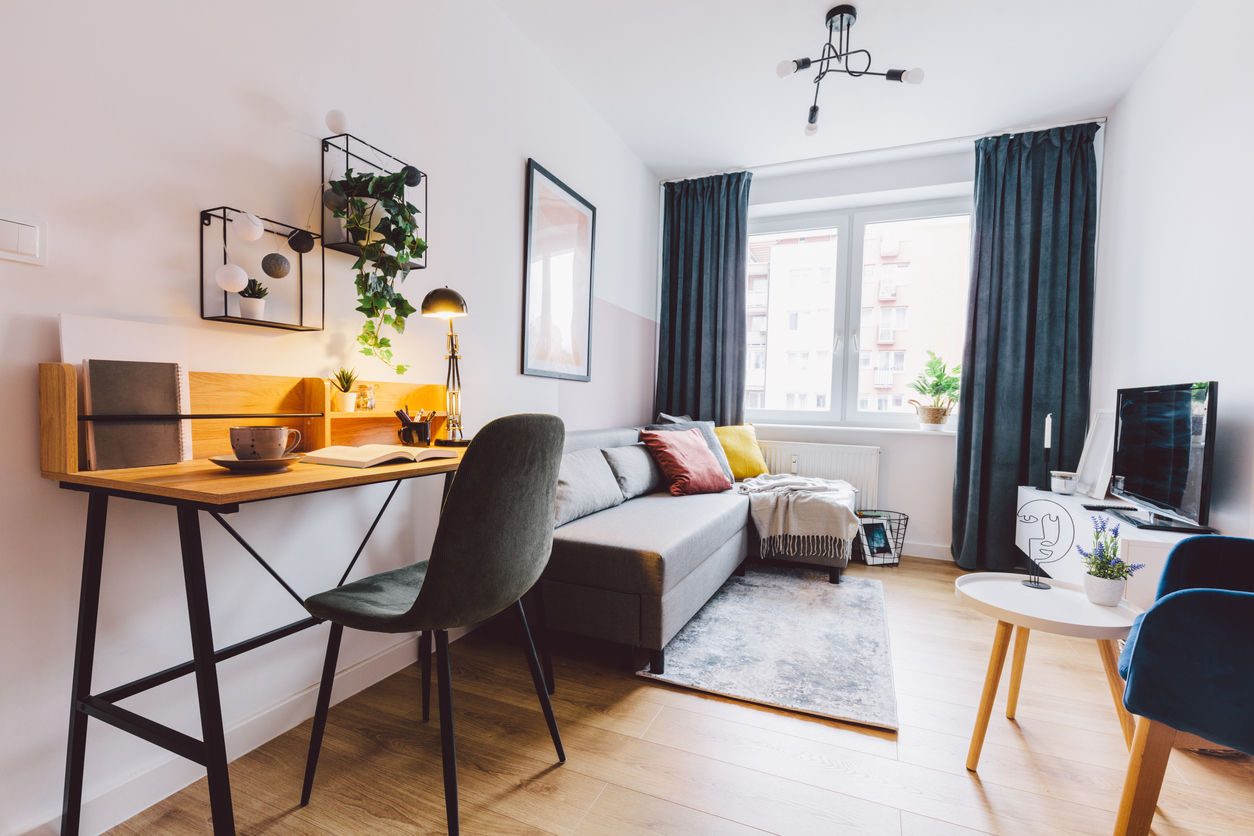How Many Showings Does it Take to Sell a House?
Showings are an essential part of the home sale process. They provide opportunities for serious buyers to tour your home and decide whether or not to put an offer on it. While photos, videos, and virtual tours can showcase your rooms, there’s nothing like physically stepping into a space and feeling like you want to live there.
While showings are exciting for sellers, they can also be stressful. You need to clean the house, put your pets away, and find somewhere to go during this time. This often leaves people wondering: how many showings do I need to sell a house?
The answer to how many showings you need will vary depending on the current market conditions, your property, and your neighborhood. It takes between 10 to 25 showings on average to sell a house, with some houses selling in less and others requiring more.
Your real estate agent should be able to help you set realistic expectations for the number of showings you will have, but they can’t promise that a home will sell within a certain time. These estimates will be based on historical data, but changes in the market can make those insights less reliable than you would like.
Here are a few factors that contribute to the number of showings you will need before you can move on to the next part of the home-selling process. Know that every showing could potentially be the last one.
Factors That Influence the Number of Showings Needed
It is impossible to know how many showings it will take to sell your home because every single house is unique. Two homes in the same neighborhood could sell for wildly different prices and stay on the market for different amounts of time because of when they were listed, their upgrades, and their amenities.
Here are a few factors that contribute to demand in the local real estate market that could determine how many showing requests you receive.
Market Conditions
Supply and demand is one of the biggest factors that determines how many showings you need. In a seller’s market, there are more buyers than available homes. This means homes are more likely to have showing requests as soon as they are listed and are more likely to receive offers.
If you live in a hot market, your agent may schedule open houses during the first weekend to drive up demand or schedule several private showings in hopes of getting a fast offer.
However, market conditions can change. Your area could switch to a buyer’s market where there are more homes than people interested in them. In this case, buyers can be picky and you may need to schedule more showings over a longer period before you can an offer.
Location and Neighborhood
Desirable neighborhoods or well-located homes typically require fewer showings, even in challenging real estate market conditions. Buyers often look for proximity to schools, access to transportation thoroughfares, and amenities like parks and trails when searching for properties. If you live in a desirable part of town, you might be able to sell your home quickly.
If you aren’t in one of the hotter areas of your city or county, your real estate agent will try to set realistic expectations for your showings. They know that the selling process can take a long time and can be frustrating to homeowners. Their goal is to maximize the number of showing requests from qualified buyers in order to potentially turn these home tours into offers.
Price Point and Listing Price
Your home price in relation to current market trends will determine the number of showings you have. Consider whether your listing price puts your home at the higher end of asking prices for homes of your size and what this means for potential buyers. Some buyers might not feel like the house is worth it if they can find similarly-sized properties for less.
It’s not necessarily a bad thing if you receive a lot of showing requests. However, it is a problem if those requests don’t turn into offers. You may need to adjust your pricing to accommodate the balanced market.
Seasonality
Real estate prices are determined by local markets but also by seasonality. Homes listed during peak seasons like spring and summer may sell with fewer showings compared to homes listed in off-peak seasons. This is because more buyers are ready to make offers in the spring (after they do their taxes) instead of uprooting themselves during the holidays.
That said, you may decide to sell your home during the off-season to attract buyers when there is less housing supply. You might have fewer showings for your home, but the ones you get are higher quality and from buyers who are ready to make offers.
Talk to your Realtor about your options if you have flexibility about when you want to sell. Waiting a few months could be a better option than listing right now.
Marketing and Listing Quality
The marketing your Realtor does to attract buyers to your home can directly impact the number of showings you have. Professional photos, videos, virtual tours, and detailed descriptions of the property can help buyers make informed choices on which homes to see. Most buyers can only tour a few homes each week, which means they have limited space to pick the best possible houses. If they have dozens of homes to choose from, yours needs to stand out.
Quality photos can attract buyers but accurate ones can increase your chances of winning buyers over once they step inside. Overly edited photos can “catfish” buyers, making them feel tricked once they walk into the home. Make sure your photos accurately reflect your home so buyers feel like they made a good choice to tour it.
Condition and Staging of the Home
Homes that are well-staged and in good condition tend to perform better, reducing the need for multiple showings. You want to make sure your house wins people over and makes them want to linger, rather than driving them away. Here are a few ways to improve the overall condition of the home without spending a lot of money.
- Declutter: Donate or throw away anything you don’t plan to move with. Pack up and store items you don’t need during the sales process (Christmas decorations in June, snorkel gear in December).
- Strive for a natural-smelling home: Banish odors by deep cleaning your house and airing it out. Avoid masking smells with strong odors like candles and essential oils. These smells could cause headaches or allergic reactions in buyers.
- Clean before every showing: Develop a routine to prepare for showings. This can include wiping down countertops, cleaning dishes, and putting items away.
- Embrace natural light: Open the blinds and let light in. This can make rooms seem bigger and more welcoming.
- Keep up your curb appeal: Maintain your lawn and trim your bushes regularly. This will keep your space looking neat.
Your goal is to position your home at its best ahead of every showing. This process might feel tedious if you have a lot of showings, but your results will be worth it.
Tips to Reduce the Number of Showings Needed to Sell
Several factors are out of your control when you sell a house. You can’t control your neighborhood, demand around certain seasons, or the behaviors of potential buyers. However, there are ways to potentially reduce the number of showings you need to go through. Here are a few ways to increase your chances that the first few showings you have turn into offers.
- Price the home competitively: an accurate pricing strategy will attract buyers who have researched homes in your area. They know what size home they can afford and are satisfied with your size, acreage, and amenities. Overpricing your home can slow the sale process.
- Stage the home professionally: A well-staged home can increase the property’s appeal and reduce the number of showings required to get an offer. Buyers can feel comfortable when touring the home and excited about potentially living there.
- Work with a top real estate professional: An experienced agent can optimize marketing strategies to reduce the number of showings needed. They will reach the right buyers while potentially filtering out unqualified showing requests or appointments with investors who would lowball you.
- Invest in marketing: Taking high-quality photos and virtual tours can generate more serious inquiries and fewer unnecessary showings. Buyers can know whether the house is a good fit or not before requesting a tour.
- Address repairs: Tackling necessary repairs upfront can prevent showings from falling flat. Buyers will be less likely to get scared off because of the number of repairs needed.
Each of these strategies is flexible. You can adjust your pricing instead of repairing parts of the house, or you can do both to maximize your chances of success. Do what is right for your home sale situation.
What If Your House Has Many Showings but No Offers?
A high number of home showings might seem like a good sign at first but could become worrisome if the showings don’t turn into offers. Most real estate agents try to get feedback from potential buyers to understand what they liked or disliked about a home. If an agent gets consistent and actionable feedback (like a lingering cigarette smell that is driving people away) the seller might be able to make changes to make the home more appealing.
However, not all feedback is actionable. One buyer might not like the view from the bedroom while the other thinks the kitchen is cramped. These things you cannot change.
Here are a few steps that are in your power if you continue to get showings without offers. This can increase your chances that you get your home sold.
- Reassess the pricing strategy: If the home has many quality showings but no offers, it may be time to adjust the listing price. The size, amenities, and design might not be worth what you are trying to get for the home.
- Make minor updates: Small improvements like fresh paint or new lighting can create positive impressions on buyers. If you weren’t able to update your home before you listed, making continuous improvements can help you get offers after multiple showings.
- Adjust your marketing strategy: Your real estate agent might not be attracting the right buyers. Consider how they are promoting your home and who they are reaching.
Your house will likely have fewer showings the longer it stays on the market. Buyers might be wary about the lack of interest in your property. This is why your real estate agent needs to make changes to keep potential buyers engaged and excited about the listing.
Find a Realtor Who Can Attract Serious Buyers
While there is never an accurate answer to how many showings you need to sell a house, you can hire a real estate agent who does their best to attract buyers who will put in offers. An experienced agent will give you tips on how you can improve your home so it stands out in a competitive market. They will make pricing recommendations that are backed by recent data and accurate research. Your agent will also be flexible and work with your needs to make your home more desirable to buyers. Even if you have a tricky home in a difficult real estate market, a quality agent can find a buyer.
To find your future Realtor, turn to FastExpert. You can read agent profiles and find Realtors who specialize in getting homes sold quickly. By reading these profiles ahead of time, you can look for real estate agents who are more likely to be a good fit for your needs and make this process smooth. You need to work with someone you can trust.
Try FastExpert today and find some of the top Realtors in your area. They can help you get more showings with qualified buyers walking through the door.





